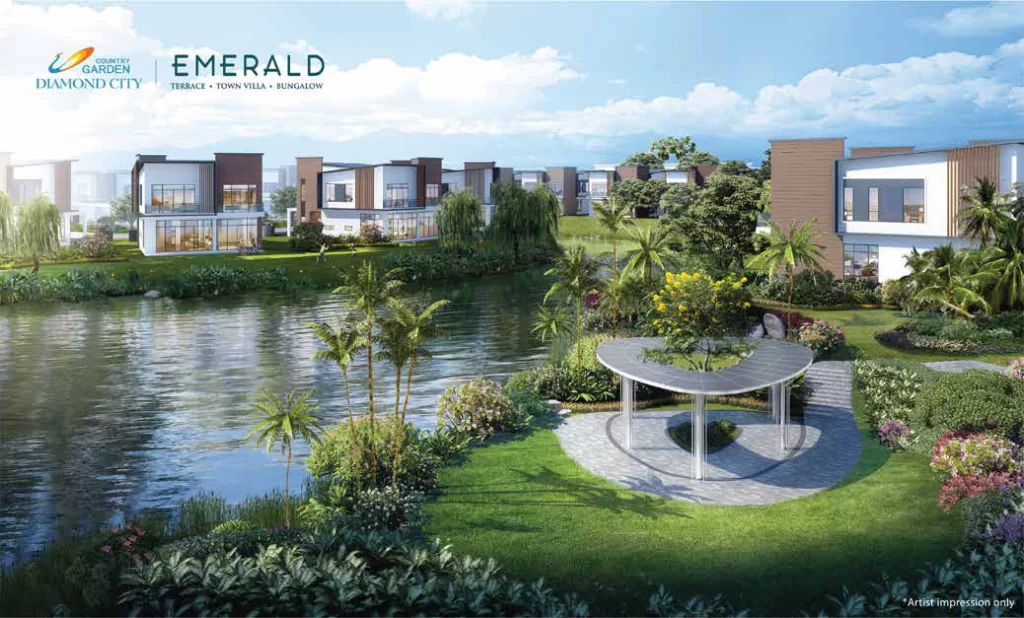
When buying property in Malaysia, the choice often narrows down to apartments (high-rise) or landed houses. Each has its own advantages, lifestyle implications, and investment potentials. This guide will help you weigh the pros and cons to find the right fit for your needs.
Key Differences Between Apartment and Landed House Developments
When considering property investment in Malaysia, deciding between an apartment or a landed house is a crucial choice. Each property type comes with its own unique benefits, lifestyle considerations, and financial implications. Understanding the key differences between these developments will help you make an informed decision based on your needs, budget, and long-term goals. Let’s dive into the factors that set apartments and landed houses apart.
1. Space and Privacy
Apartments typically offer limited space but come with shared amenities, while landed houses provide larger living spaces and more privacy.
2. Amenities and Facilities
Apartments often include amenities like pools, gyms, and playgrounds, making them a convenient choice. Landed houses, on the other hand, have private outdoor spaces, giving homeowners more autonomy but often requiring separate access to such facilities.
3. Maintenance and Security
Apartments usually have higher maintenance fees that cover security, building upkeep, and common area management. Landed houses, while offering more freedom, require homeowners to manage their own property and security measures.
Cost and Affordability
Cost and affordability are often the top considerations for property buyers. Apartments generally have a lower upfront cost, making them more accessible for first-time buyers or investors on a budget. Landed houses, while offering more space and privacy, come with a higher price tag. It’s essential to weigh both the short-term costs and long-term value to determine which property type aligns better with your financial capabilities and future plans.
Location and Accessibility
1. Proximity to City Centers
Apartments are commonly found near city centers and business districts, offering greater accessibility and shorter commute times. Public transportation and essential services are also within easy reach.
2. Suburban vs. Urban Living
Landed houses are usually situated in suburban areas, providing a quieter environment and a sense of tranquility. However, they may require longer travel times to city centers.
Lifestyle Considerations
1. Family and Space Needs
For larger families, landed houses are ideal for the extra space they provide for activities and gatherings. Apartments can suit smaller families or individuals who do not require as much space.
2. Convenience and Community Living
Apartments promote a community lifestyle due to their shared spaces and facilities, which can be beneficial for social engagement. In contrast, landed houses offer more independence and private living.
3. Security and Lifestyle Preferences
Apartments often come with 24-hour security and surveillance, offering peace of mind to residents. Meanwhile, landed property owners can enjoy more control over their living space but may need to invest in private security systems.
Investment Potential
1. Rental Yield and Market Demand
Apartments tend to attract higher rental demand, especially in key urban areas. The yield may vary depending on location, facilities, and demand from families, professionals, and students.
2. Capital Appreciation
Landed houses usually have greater capital appreciation over time due to their limited supply and increasing demand for private spaces. However, apartment values can also appreciate if they are located in growing urban areas with increasing market demand.
Pros and Cons of Each Property Type
1. Apartments
Pros: Apartments come with a more affordable entry price and usually offer a range of amenities like gyms, pools, and enhanced security. Shared facilities and maintenance make apartment living convenient for those seeking a low-maintenance lifestyle.
Cons: The downsides include less living space and privacy compared to landed homes. Shared walls and communal areas may limit personal space, and higher maintenance fees can be expected.
2. Landed Houses
Pros: Landed houses offer a larger living space and more privacy. They often have better potential for value appreciation, making them a solid long-term investment.
Cons: These homes come with higher upfront costs and require individual maintenance responsibilities. Additionally, landed properties may lack shared amenities found in apartment complexes.
Is a Townhouse Right for You?
For those seeking a middle-ground option, townhouses offer multi-story living with some shared amenities. They may provide a balance between apartment convenience and the spaciousness of a landed house.
Key Considerations When Buying
- Location & Accessibility: Opt for a location that provides easy access to work, schools, and essential services. Consider traffic patterns and how easily you can get to key destinations.
- Property Features: Evaluate the property’s size, layout, and facilities. Choose features that match your lifestyle and plan for potential family growth.
- Legal & Financial Aspects: Be clear on financing options, legal obligations, and any hidden costs like taxes or maintenance fees to avoid surprises.
- Resale Value: Analyze market trends to understand the property’s appreciation potential, which will affect its resale value in the future.
Alternatives to Townhouses in Malaysia
If you’re considering other options, compare townhouses with condominiums, semi-detached, or detached homes. Evaluate the differences in terms of price, lifestyle, and long-term investment potential.
Conclusion: Is a Townhouse Right for You?
When deciding between an apartment and a landed house in Malaysia, consider your lifestyle, financial situation, and investment goals. Apartments are great for those seeking convenience, security, and affordability. Landed houses are suitable for those who value privacy, space, and long-term capital appreciation. Evaluate your priorities and make a choice that best fits your needs.
